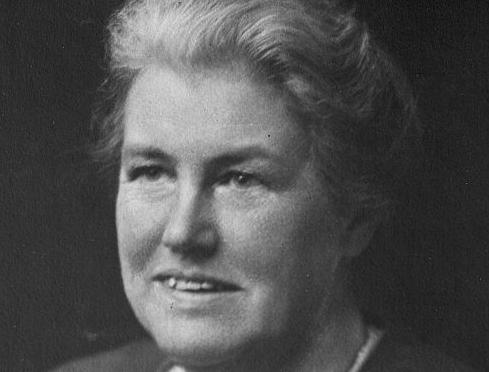Louisa Aldrich-Blake: Google Doodle honours Britain's pioneering first female surgeon
Aldrich-Blake trained as a surgeon in the hope of doing 'something useful' and ended up changing medical history

Your support helps us to tell the story
From reproductive rights to climate change to Big Tech, The Independent is on the ground when the story is developing. Whether it's investigating the financials of Elon Musk's pro-Trump PAC or producing our latest documentary, 'The A Word', which shines a light on the American women fighting for reproductive rights, we know how important it is to parse out the facts from the messaging.
At such a critical moment in US history, we need reporters on the ground. Your donation allows us to keep sending journalists to speak to both sides of the story.
The Independent is trusted by Americans across the entire political spectrum. And unlike many other quality news outlets, we choose not to lock Americans out of our reporting and analysis with paywalls. We believe quality journalism should be available to everyone, paid for by those who can afford it.
Your support makes all the difference.Louisa Aldrich-Blake always wanted to be a surgeon, in the hope of doing something useful. And she did: there is little more useful than changing the world.
Aldrich-Blake was the first British female surgeon ever, a pioneering expert who not only led the way for women in a field dominated entirely by men, but also helped bring other breakthroughs in the medical profession.
She was born in Essex, one of six children. She would retain a commitment to her home of Chingford throughout her life.
But it was in 1887, when she entered the the London School of Medicine for Women with the aim of becoming a surgeon that the work that would define her life and the rest of medical history would begin. She graduated with a series of degrees at the highest level, and in 1895 became the first ever woman to get the master of surgery or MS.
That same year, she became an assistant surgeon at the New Hospital for Women, which was staffed only by women. And she went on to take on a range of other pioneering appointments: becoming the first woman to be anaesthetist to the Royal Free Hospital, and the first woman to be surgical registrar at the Royal Free.
It was the London School of Medicine for Women, which had the Royal Free as its teaching hospital, that she would become most closely associated with. She eventually became its dean and saw it through the First World War, when it doubled in size as women undertook medical training to help with the war effort, which she also helped out with more directly.
Aldrich-Blake did not seem to see herself as a campaigning feminist. Instead, she aimed to help women's place by her pioneering work, and stressing to her students that they could do the same.
Her pioneering approach also took her to the very leading edge of surgery. In 1903, she published a paper discussing a new treatment for rectal cancer, and she was one of the first surgeons in Britain to undertake innovative surgery to treat carcinoma of the cervix.
She died in on 28 December, 1925, after having worked almost up to the very end of her life. She is commemorated today by a statue in London's Tavistock Square, close to many of the institutions that trained her up and which she then helped pioneer.
As part of the announcement of its new Doodle, Google highlighted the work of Lydia Nicholas, the illustrator who helped create it. She spoke about how the drawing had helped highlight a story that might be less well-known but had a huge impact on the world.
"The world is full of inspiring stories, but sometimes they take work to unearth. My favourite part about the Doodle Team is that it’s our mission to do the unearthing," she said in a Q&A. "It’s truly a privilege to share stories that might otherwise get lost or forgotten because these stories of yesteryear shaped (and continue to shape!) our world today.
"If Aldrich-Blake hadn’t pioneered so many surgeries, who knows how long such progress would have taken? Every action ripples out and stories like hers are a testament to the impact that actions, both large and small, can have."
Join our commenting forum
Join thought-provoking conversations, follow other Independent readers and see their replies
Comments